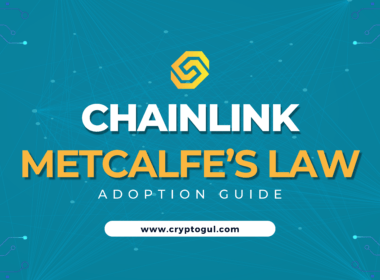The assertion of “why blockchain is not the future” has become a prevalent topic in the world of technology.
Despite the growing interest in blockchain technology and its potential applications across various sectors, it is essential to critically evaluate its limitations and challenges.
While blockchain technology has been revolutionary in areas such as decentralized finance and supply chain management, it is important to analyze its broader implications and limitations before accepting it as the future of all industries.
Energy Consumption and Environmental Concerns
One significant issue with blockchain technology, particularly in the context of cryptocurrencies like Bitcoin, is the massive energy consumption required to maintain the network.
This energy consumption contributes to greenhouse gas emissions and exacerbates climate change, casting doubt on the long-term viability of blockchain technology as a sustainable solution.
Adoption of Energy-Efficient Solutions
On the flip side, there are ongoing efforts to develop more energy-efficient blockchain solutions, such as proof-of-stake and other consensus mechanisms, which may address some of these sustainability concerns.
Scalability and Efficiency Issues
Blockchain technology faces significant scalability and efficiency challenges. As the number of transactions increases, the time and resources required to process and verify them also grow, leading to slower transaction times and higher fees.
This poses a significant barrier to widespread adoption and limits the usefulness of blockchain technology in many industries.
Ongoing Developments in Scalability
On the other hand, ongoing research and development in blockchain technology are focused on addressing these scalability concerns.
Centralization and Control
Although blockchain technology is often touted as a decentralized solution, many blockchain projects are, in fact, highly centralized.
This centralization allows for control by a small group of individuals or organizations, undermining the core principles of decentralization and trustlessness that blockchain technology is supposed to embody.
Decentralized Governance Models
Contrarily, the emergence of decentralized governance models and token-based incentives can help mitigate centralization issues, ensuring a fair distribution of power and decision-making within the network.
Security Vulnerabilities
While blockchain technology is often praised for its security, it is not immune to vulnerabilities and attacks.
Some blockchain networks have experienced 51% attacks, in which an individual or group gains control of more than 50% of the network’s hashing power, allowing them to manipulate the blockchain.
Additionally, smart contracts and decentralized applications built on blockchain platforms can contain vulnerabilities, putting users’ funds at risk.
Improving Security Measures
Despite the risks, the blockchain community actively works on improving security measures.
Ongoing research and technological advancements are aimed at reducing potential vulnerabilities and making blockchain networks more secure and resilient.
Limited Use Cases and Adoption
While there are some successful implementations of blockchain technology, the number of practical use cases remains limited.
Many industries and sectors have yet to find a compelling reason to adopt blockchain technology, and it may never become the transformative force that its proponents claim.
The Uncertain Regulatory Environment
The regulatory environment surrounding blockchain technology and cryptocurrencies is complex and uncertain.
Governments and regulatory agencies worldwide are grappling with how to regulate these new technologies, which can create a challenging landscape for blockchain adoption and innovation.
Progress in Regulatory Clarity
However, there has been progress in regulatory clarity in some jurisdictions.
As governments become more familiar with blockchain technology, they are likely to develop more comprehensive and supportive regulatory frameworks.
The Hype and Speculation
Much of the excitement surrounding blockchain technology is driven by hype and speculation rather than real-world utility.
This speculative frenzy can lead to market bubbles and crashes, which can damage the reputation of blockchain technology and hinder its long-term growth and adoption.
Lack of Interoperability
Blockchain platforms often lack interoperability, making it difficult for different blockchain networks to communicate and interact with one another.
Alternative Technologies
In some cases, alternative technologies may be more efficient, cost-effective, and environmentally friendly, making them a more attractive option for certain industries and use cases.
The Role of Human Trust
While blockchain technology seeks to eliminate the need for trust in human institutions, trust is an essential aspect of human society.
Blockchain technology may not be able to entirely replace the role of trust in human interactions and transactions, limiting its potential impact.
The Digital Divide
The adoption of blockchain technology can exacerbate the digital divide, as it requires access to technology and the internet to participate.
This can leave behind those in underdeveloped regions or with limited resources, further increasing inequality and excluding large portions of the global population from the benefits of blockchain technology.
Efforts to Bridge the Gap
Nevertheless, many initiatives are working to bridge the digital divide by providing access to technology and the internet to underserved populations, potentially allowing them to benefit from blockchain technology.
Difficulty in Implementing Blockchain Solutions
Implementing blockchain solutions in existing systems and organizations can be complex and challenging.
Integrating blockchain technology into existing workflows, processes, and infrastructure often requires significant resources, time, and expertise.
This can be a significant barrier to adoption, particularly for smaller organizations and businesses.
The Potential of Blockchain Adoption
Conversely, the potential benefits of blockchain adoption, such as increased transparency, security, and efficiency, may outweigh the initial implementation challenges.
As the technology matures, it may become more accessible and easier to integrate into various industries.
Conclusion
While blockchain technology has the potential to disrupt and revolutionize certain industries, it is essential to recognize its limitations and challenges.
The hype surrounding blockchain technology may not match its real-world utility, and alternative solutions may prove more effective and sustainable in some cases.
Ultimately, it is crucial to critically assess the value and potential of blockchain technology on a case-by-case basis, rather than blindly accepting it as the future of all industries.
While blockchain has the potential to revolutionize certain industries, much of the excitement surrounding it is driven by hype and speculation. It’s essential to evaluate the real-world utility of blockchain technology critically.
Yes, there are alternative technologies that may be more efficient, cost-effective, and environmentally friendly for specific use cases, making them more attractive options for certain industries.
Numerous factors, such as scalability and efficiency issues, centralization, and security vulnerabilities, limit the widespread adoption of blockchain technology. Additionally, the uncertain regulatory environment and the digital divide contribute to its limited use.
The energy consumption of blockchain technology, particularly for cryptocurrencies like Bitcoin, raises concerns about its long-term sustainability. However, there are ongoing efforts to develop more energy-efficient blockchain solutions, which may address some of these concerns.
While blockchain technology has the potential to disrupt certain aspects of the financial industry, it is unlikely to entirely replace traditional financial institutions. Trust in human institutions remains a vital aspect of society, and blockchain technology may not be able to fully replace that trust.








